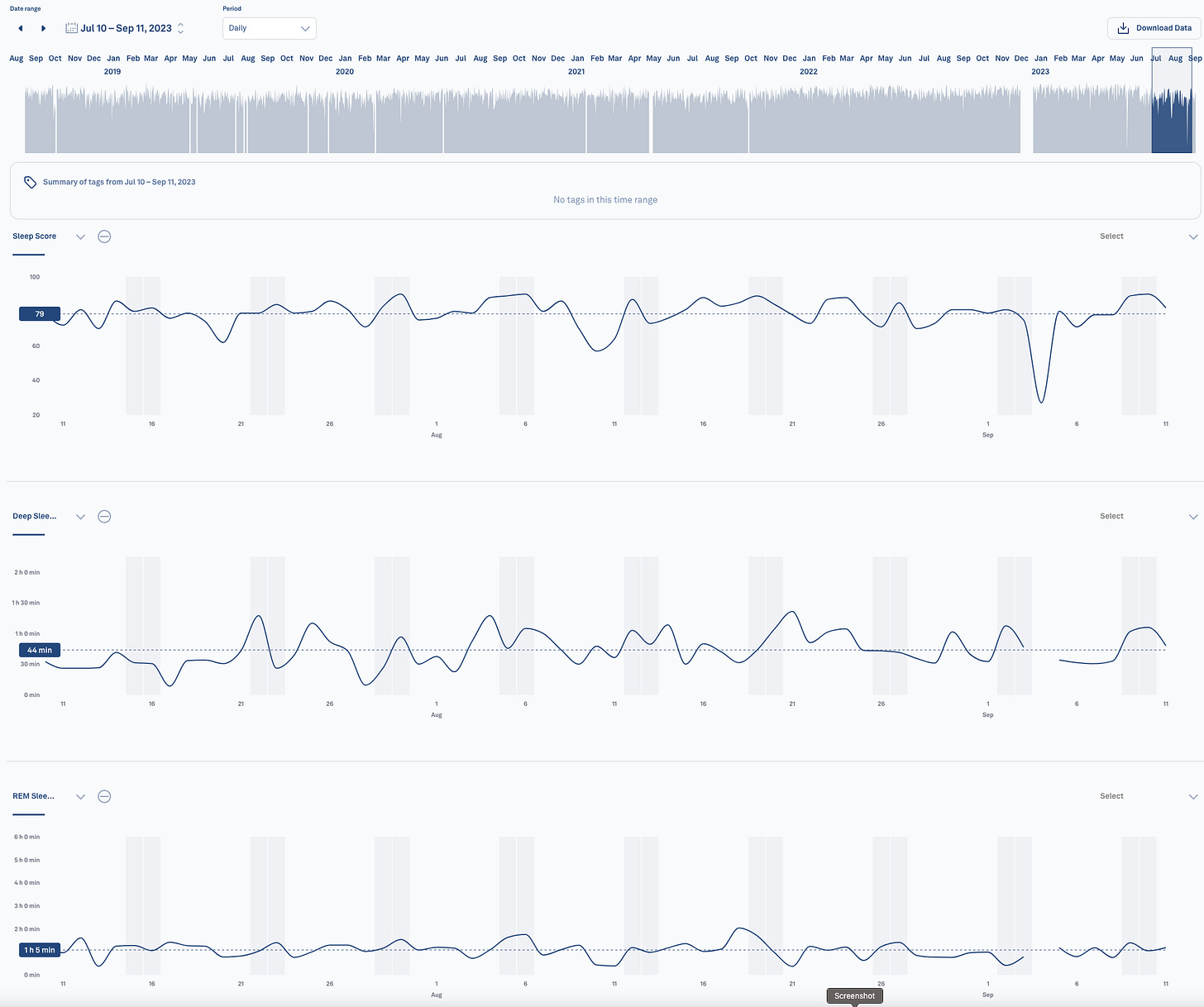My coffee fast experiment
I love coffee. I always have. The idea of taking a break from it never originated from me, unthinkable really. But, I found myself in this situation when I signed up for a retreat in Colorado. Part of the preparation for this retreat was to follow several restrictions for two weeks. This included abstaining from coffee, something I learned about only after signing up.
I'd certainly heard about coffee withdrawal syndrome from others, and that it's not pleasant. Given this, I wasn’t eager to experience it. However, being the biohacker that I am, I viewed this as an opportunity for a self-study.
My Normal Coffee Routine
As I've mentioned, I love coffee. I drink it black, no sugar, often a robust Americano made from 2 double espresso shots. I savor its taste, akin to the way a wine connoisseur would. My go-to is Black Cat Espresso, but I do enjoy Taiwanese coffee when I can find it.
Here's a breakdown:
Legion Pre-Workout drink (1/2 serving): 175 mg (early AM)
Americano (2x double espresso): 280mg (for breakfast, using an average double espresso estimate of 120-160 mg)
On occasion, I might have another coffee after lunch. But these instances are rarer these days due to its impact on my sleep quality, not in terms of how long or how quickly I sleep, but the depth and quality of it, as shown by my Oura ring data.
The Ramp-Down Protocol
To cut back on caffeine, I followed these steps:
4 weeks: No second coffee during the day.
3 weeks: Substituted my Americano with a decaf version (still Black Cat Espresso) and no coffee after lunch.
2 weeks: Shifted to a non-caffeinated version of the Legion drink.
The first and second steps, particularly the switch from caffeinated to decaf Americano, were smooth. Completely cutting off caffeine led to a mild discomfort around day two, but it wasn’t as dreadful as I'd anticipated.
Subjective Experience
The absence of coffee brought noticeable changes. My workouts, especially in power lifting moves, weren’t as good (quite lousy actually to be frank). My thinking felt slightly slower.
However, the days did have a notable calming effect. My focus sharpened and my ability to get into the flow of tasks improved.
But, even when using the same brand, decaf didn't quite hit the mark in taste compared to its caffeinated counterpart.
Objective Data
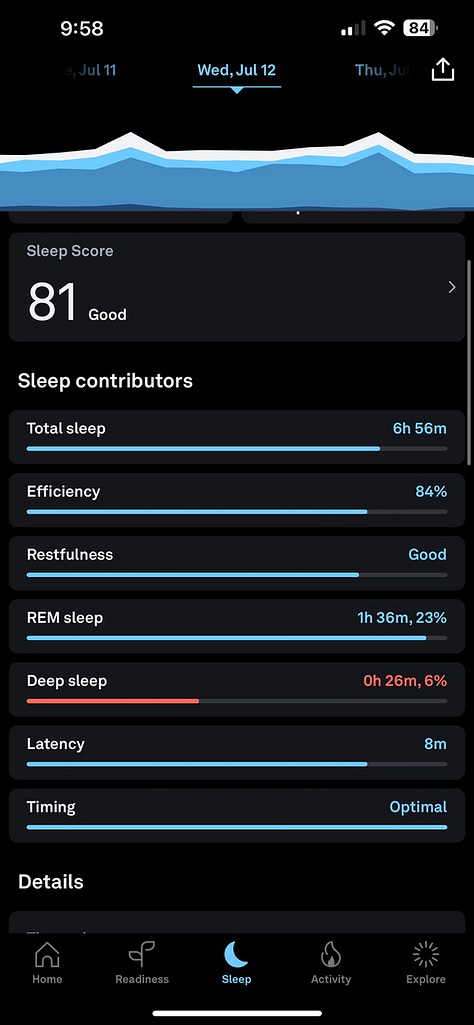
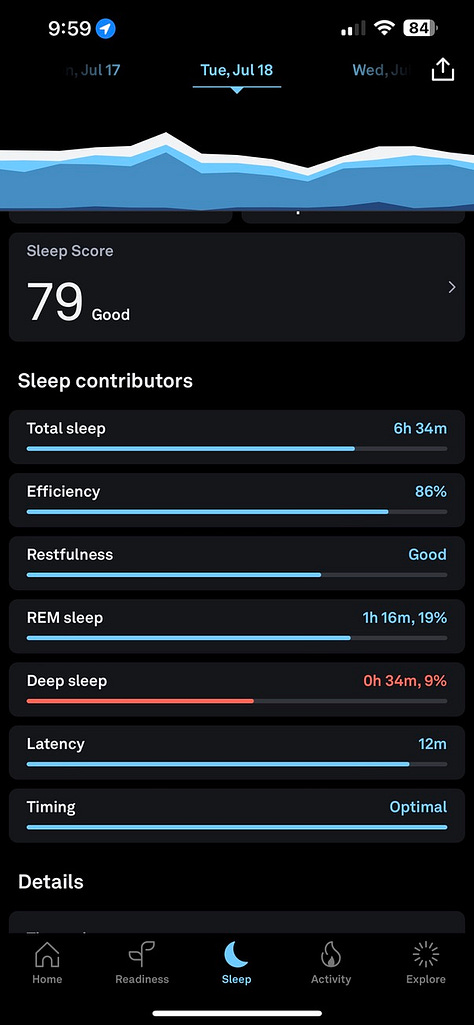
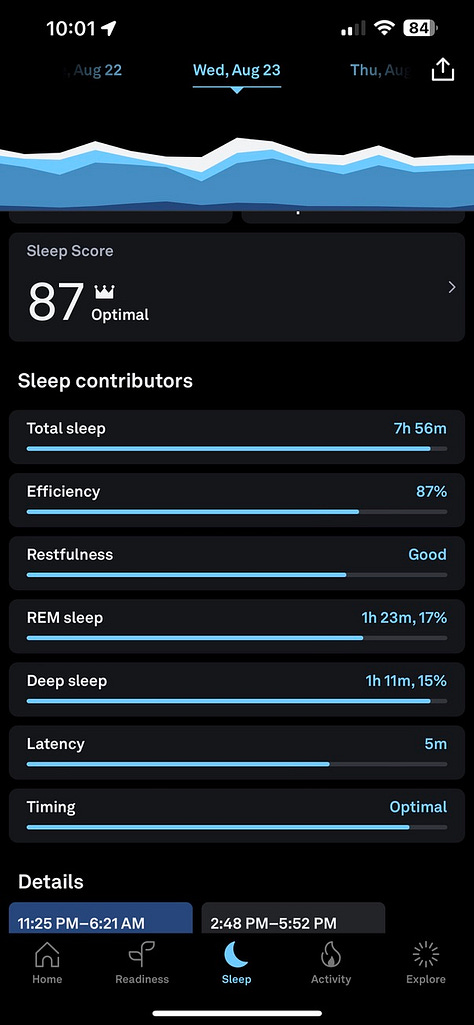
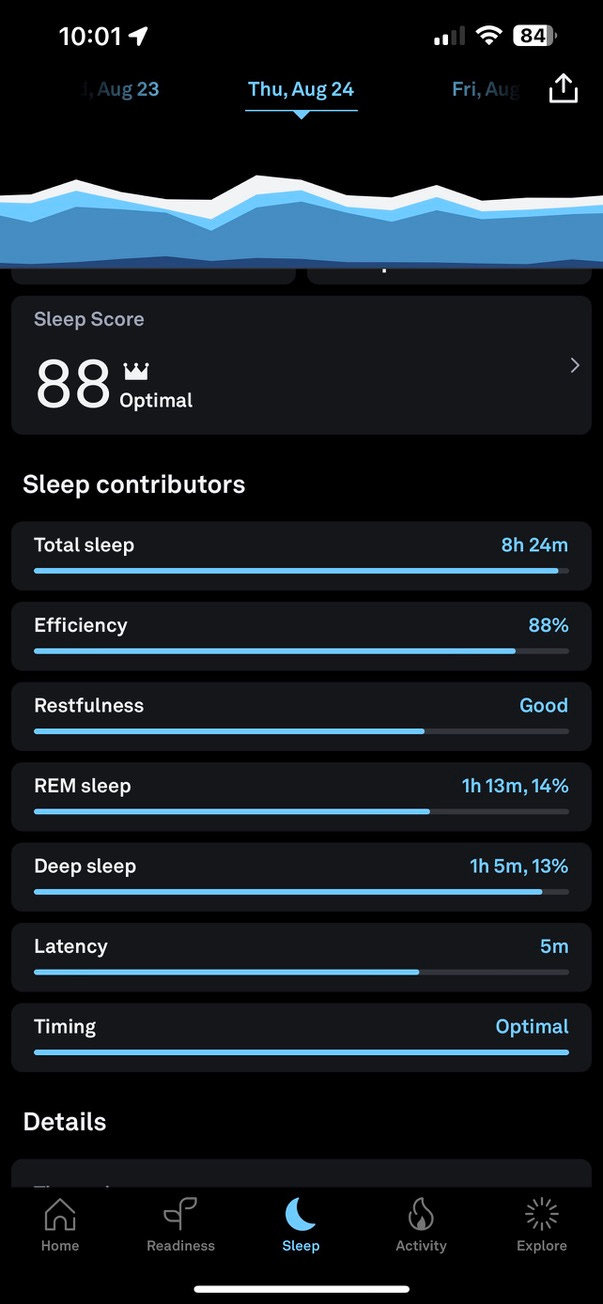


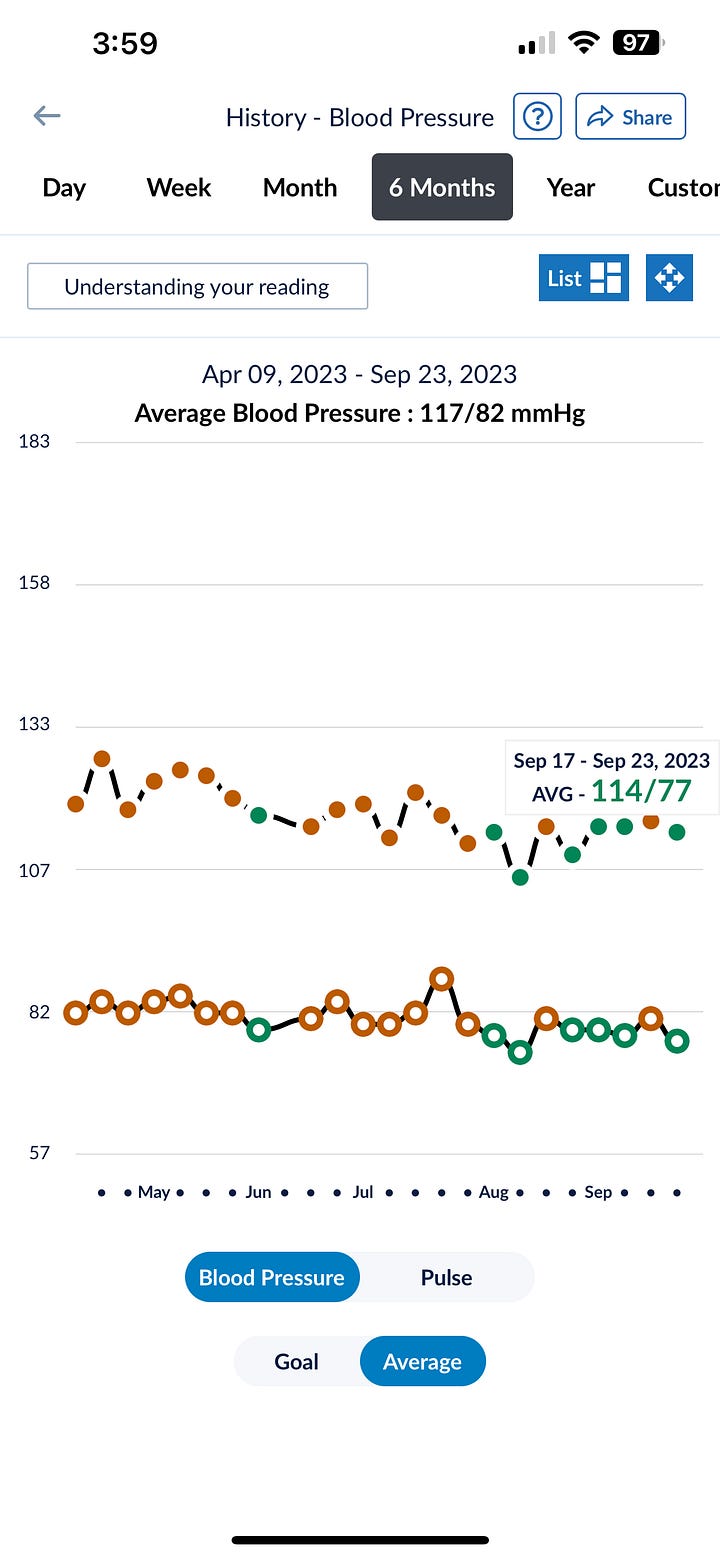
The data is somewhat hard to interpret and comes off as noisy; the experiment likely needed more time for clearer results. The Oura ring, though good in comparison to other devices, isn't entirely accurate, particularly regarding sleep stages. Their recent statistics indicate a 79% agreement with polysomnography, which isn't as impressive as one might hope.
With those disclaimers in mind, you can see a discernable improvement in sleep quality and especially deep sleep. Interestingly, sleep latency didn't seem to be affected, suggesting that mechanisms beyond just the blockage of adenosine receptors, like hormonal regulation, might be at play.
My blood pressure exhibited a significant drop, which could be a potential reason for the decrease in workout performance. It's worth noting that I measure my blood pressure using the Omron 10 Series monitor, in the mornings. Since I don't strictly adhere to guidelines like remaining still for a while before taking measurements (in the interest of time), the absolute readings are somewhat higher (by 5-8 points) than a precise clinical measurement.
Ramp Back Up Protocol
Getting back on caffeine mirrored the wind-down:
First up was the caffeinated Legion pre-workout.
A week later, my regular Americano returned.
With the reintroduction, I observed:
A bounce-back in workout quality.
Faster thinking.
A delightful Americano experience once again.
My blood pressure saw a slight uptick but remained below my initial readings. The sense of calm I experienced earlier started to diminish, as did some of the increased focus. While sleep quality did decline a bit, it was surprisingly still better overall.
And all this was after the retreat, which could have influenced some of these observations.
Parting Thoughts
The big takeaway? Living without coffee is feasible. The effects of withdrawal are manageable. Yet, there are trade-offs:
Sleep: Coffee, even just in the morning, does affect it.
Focus: There's a definite improvement without caffeine.
Mental Speed & Workouts: They thrive with caffeine.
Decaf: Doesn’t taste quite the same.
To wrap up: Would I quit coffee entirely? Hell no. But considering breaks based on my observations? It's a possibility.



